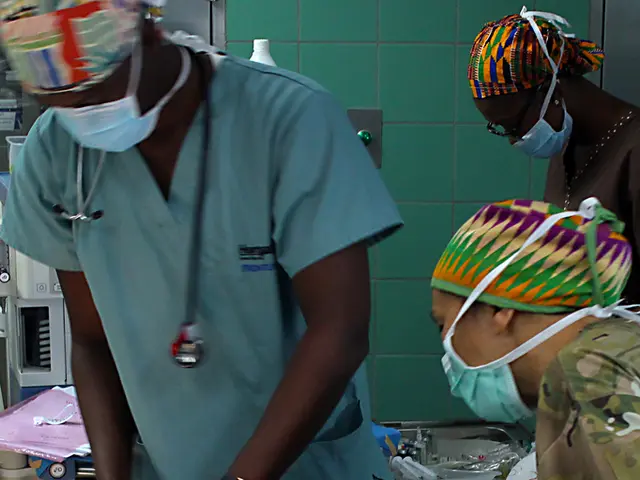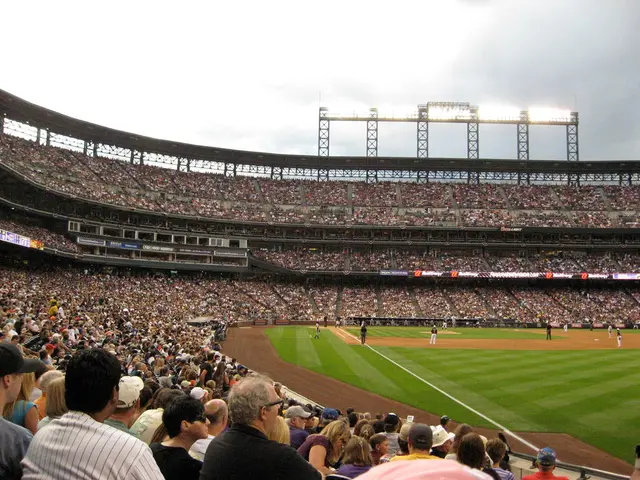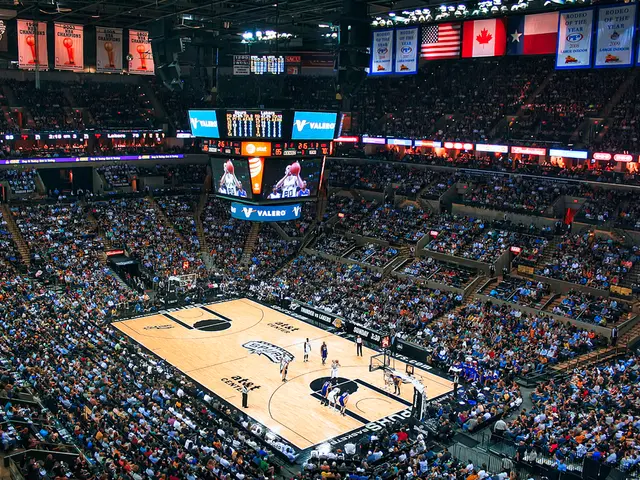Ukraine-Russia reconciliation considered unavoidable by Vladimir Putin
"Looks like we're stuck in the thick of it, mate." That's what Putin had to say about the ongoing standoff with Ukraine.
The Russian president has been thrown into the spotlight recently, responding to Ukrainian Armed Forces provocations by stating that Kyiv desired Russia to falter. He emphasized that no need to deploy nukes in the past three years of military actions, and he hoped it wouldn't be needed in the future. Putin insisted that Russia possesses the strength and resources to conclude what was started in 2022, securing a victory for Russia.
Despite expressing a readiness for negotiations with Kyiv, Putin lamented over the roadblocks set by a decree signed by Ukrainian President Zelensky, which refused talks with Russia as long as Putin remains in power. In October of 2024, Putin confirmed that Moscow was prepared to resume talks with Kyiv, but only based on a negotiated document.
Since February of 2022, multiple rounds of Russia-Ukraine talks took place, with four meetings in Belarus and one in Istanbul. However, Kyiv pulled out from the negotiation process after that. In late January 2025, Putin brought up the draft agreement worked out in Istanbul, which he claimed was based on Kyiv's proposals.
On April 28, Putin once again proposed peace talks without preconditions, declaring a ceasefire from 00:00 Moscow time on May 8 to midnight on May 11. Moscow appealed to Kyiv to reciprocate, but Zelensky turned down the initiative, advocating instead for a 30-day ceasefire. The Kremlin viewed this as a test of Kyiv's determination to find a route towards a "long-term, stable peace."
As things stand, the peace talks between Russia and Ukraine are at a standstill. The US is working diligently on promoting a ceasefire before negotiations, which Ukraine supports, but Russia dismisses. Some progress has been made, such as agreements on mineral rights and reconstruction between the US and Ukraine, and diplomatic meetings including President Zelensky and former President Trump.
However, the peace initiative has encountered resistance due to the ongoing intense military operations. European officials express skepticism regarding any peace framework requiring concessions from Ukraine. A recent peace proposal included US recognition of Crimea as part of Russia and unofficial recognition of Russian control in eastern Ukraine, but Ukraine is hesitant to accept it.
Ukraine has demonstrated a preference for negotiating a 30-day ceasefire rather than accepting frameworks that potentially compromise Ukrainian territory. Putin has taken a hardline stance, rejecting calls for a ceasefire as a precursor to negotiations and emphasizing ongoing military operations to achieve his objectives in Ukraine.
In short, while diplomatic efforts continue, the talks are currently at a deadlock. Ukraine demands a ceasefire before negotiations and refuses territorial concessions, while Russia under Putin persists with its military strategy and dismisses a ceasefire as a prerequisite for talks, insisting on recognition of its territorial gains. The conflict is expected to escalate in the coming months, with the military situation playing a crucial role in the prospects for successful negotiations.
- Putin proposed a ceasefire from May 8 to May 11, but Zelensky turned down the initiative, advocating instead for a 30-day ceasefire.
- Despite Putin's readiness for negotiations with Kyiv, a decree signed by President Zelensky refused talks with Russia as long as Putin remains in power.
- In late January 2025, Putin brought up the draft agreement worked out in Istanbul, which he claimed was based on Kyiv's proposals.
- The Russian president has been willing to discuss a ceasefire in the ongoing conflict, but without preconditions, leaving political negotiations for the future, particularly in 2024 and beyond.








